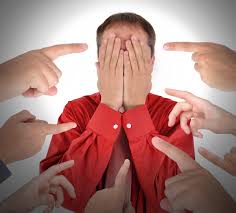
Case Study
I have to go to all these networking events for work. But, I get there and all I want to do is crawl into a hole. I feel so awkward. I don’t know anybody there and I’m expected to start up conversations with random people and I have no idea what to talk about. Everyone always looks like they’re having a great time and here I am, drink in hand, alone in a corner wondering if my mascara is running or I have toilet paper stuck to my shoe or if I have spinach in my teeth. And, when someone decides to approach me, my mind goes blank! I stutter, my hands get all sweaty, and I sound like I’m the dumbest person around – like, what am I doing there if I don’t know anything about what we’re networking for? Getting there isn’t fun either. I was 45 minutes late to the last event I attended because I couldn’t decide on what to wear and then I kept procrastinating because I just didn’t want to go. The stress of it all makes my stomach hurt. I’m smart. I know my trade. But, I just can’t do these mixers. They are so anxiety provoking and I don’t know why!

Does any of this sound familiar?
If so, you might be suffering from some social anxiety tendencies.
Social Anxiety is characterized by social interactions causing an irrational sense of fear, self-consciousness, anxiety, and/or embarrassment. You might experience excessive fear of social situations in which you think others are judging you, you’re worried you will be embarrassed or humiliated, or you might offend someone. You might fear saying the wrong thing, possibly at the wrong time, not understanding conversation around you, and worry that all eyes are on you. You might fear that you won’t fit in or that you might be looked at as a fraud.
Believe it or not, many people suffer from social anxiety! About 15 million American adults suffer from some form of social anxiety. The average rate of diagnosis is 13 years old! And, many don’t get help. According to the Anxiety and Depression Association of America, nearly 36 percent of people suffering from social anxiety have reported symptoms for 10 years or more before getting help!
WHY ME??
Social anxiety, like many other disorders, is most definitely genetic. So, if your mom or dad or grandma suffered from some sort of anxiety or depression, it’s highly likely your social anxiety was passed on from them. The way your brain is made up could also be the reason. Folks suffering from anxiety and panic disorders have a hypersensitive amygdala. The chemical makeup of your brain can also be to blame.[1] Your past experiences could be the cause of your social anxiety. If you experience a traumatic event that caused you great embarrassment or humiliation OR you suffer long-term rejection or bullying, that can result in your aversion to social situations. If you’ve had a lack of social experiences to practice socializing and gaining confidence, this, too, can contribute to your social anxiety. Without having had the practice of socializing, you can’t develop your confidence, thus encouraging you to shy away from social situations.
But, why suffer? Treatment is challenging, but doable. Aside from talk therapy, you could also gain relief from group therapy work and exposure response prevention therapy. Exposure response prevention therapy (ERP) seeks to change your response to those scary social situations. ERP is a form of cognitive behavior therapy and encourages you to face your fears without engaging in your fearful behavior (such as avoidance). For example, you would take small steps to attending a social event until that fear of attending no longer came up. ERP is especially effective in treating Obsessive Compulsive Disorder, but has been extremely effective with the treatment of social anxiety.
You don’t have to live a life of isolation. You can attend social gatherings without fear! Be the social butterfly you want to be and eliminate your social fears. You just need to reach out and find help. Find a therapist you trust – you’ll be so happy you did!
https://www.adaa.org/understanding-anxiety/social-anxiety-disorder
[1] http://disorder-social-anxiety.blogspot.com/2007/02/where-does-social-anxiety-disorder-come.html
